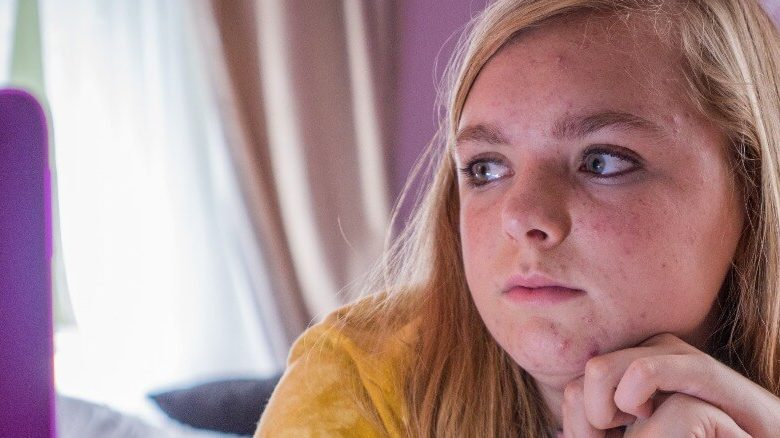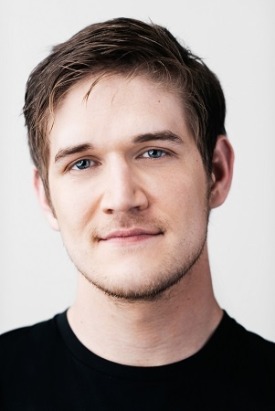How ‘Eighth Grade’ Demolishes PC Limitations

To social justice warriors, “Eighth Grade” has no right being as great as most critics claim.
The latest wisdom from our politically correct betters says artists shouldn’t tell stories outside of their experiences.
So how did Bo Burnham write and direct a film with an eye-popping 99 percent “fresh” rating at RottenTomatoes.com? He’s a 27-year-old white male, and a stand-up comic on top of that. What could he possibly understand about the female teen experience?
Plenty, apparently.

“Eighth Grade” stars Elsie Fisher as Kayla, a 13-year-old girl navigating her final days in middle school. She’s surgically attached to her smart phone and suffers the kinds of indignities all too common to modern teens.
She’s us, even if we don’t share her gender, body type or socio-economic status. That’s everything we’re told cannot happen with modern storytellers.
Or, more precisely, shouldn’t.
To get inside this particular thought process, consider these recent battles:
Author Anthony Horowitz says he was “warned off” including a black character in his new book because it was “inappropriate” for a white writer. The creator of the Alex Rider teenage spy novels says an editor told him it could be considered “patronising” … Horowitz, who has written 10 novels featuring teenage spy Alex Rider, said there was a “chain of thought” in America that it was “inappropriate” for white writers to try to create black characters, something which he described as “dangerous territory.”
Author and TV personality Yassmin Abdel-Magied should be against Burnham’s movie. Here, she carped about American author Lionel Shriver defending authors who write fiction with this scathing op-ed.
It’s not always OK if a white guy writes the story of a Nigerian woman because the actual Nigerian woman can’t get published or reviewed to begin with. It’s not always OK if a straight white woman writes the story of a queer Indigenous man, because when was the last time you heard a queer Indigenous man tell his own story? How is it that said straight white woman will profit from an experience that is not hers, and those with the actual experience never be provided the opportunity?
These aren’t isolated incidents.
Social Justice Warriors howled that two white TV producers, David Benioff and D.B. Weiss, shouldn’t create a show like HBO’s “Confederate.”
Why?
They haven’t endured modern prejudice like black Americans have. “Confederate” imagines a country where the South never gave up slavery, a deeply provocative perspective.
Cathy Young captured the SJW sentiment with two stirring sentences.
A work can reinvent the material or even serve as a tribute, but no matter. If artists dabble outside their own cultural experiences, they’ve committed a creative sin.
Burnham isn’t the only artist to shred the parameters installed by the PC police. Consider Taylor Sheridan, the suddenly in-demand scribe behind “Hell or High Water.” His directorial debut, “Wind River,” found the white artist surveying life on an Indian reservation.
Once again, the critics raved over his work.
Sheridan clearly did his homework, lending the project unerring details and empathy. Yet some suggest neither Sheridan nor Burnham should have attempted this in the first place.
Another recent example where artists successfully shared stories outside their worldview?
“The Rider” told the fact-based story of a rodeo star (Brady Jandreau) coming to grips with a serious head injury. It’s a cowboy tale featuring a Native American actor told by a Chinese writer/director Chloe Zhao.
Let that sink in.
RELATED: Mike Birbiglia Says PC Rules Could Crush Great Art
“The Rider” is downright beautiful in every way that matters. Film critics couldn’t agree more. The film currently sports a 97 percent “Fresh” rating.
Zhao took on those who insist on cultural hegemony head on in a recent Washington Times interview.
“Everybody has the right to go into any community and make films about anyone if you can connect on a human level,” said Ms. Zhao, who was born in Beijing and studied at New York University’s Graduate Film Program. “There’s a need for it now.”
“All these things that make us think we’re this group of people, all that is not nature, it’s nurture. I’m much more interested in the nature part of humanity,” she added.
It seems almost silly to recall previous examples where artists reached beyond their life experiences to create sensational art. Look no further than Woody Allen. For decades the writer/director crafted rich female roles that attracted the very best actresses of their time.
And is there a more iconic portrait of young, complicated males than S.E. Hinton’s tome “The Outsiders?”
Certainly artists exploring fresh territory can stumble if they don’t do their homework. That’s precisely what most artists do. Authors, in particularly, copiously research subjects to shape their stories. It’s an essential part of their prep work.
For example, Nelson DeMille has a long list of military experts to quiz whenever he sits down to write his next thriller.
It’s what artists have done for ages. Only some would like that aspect of the creative process to go away in our new “woke” age.
